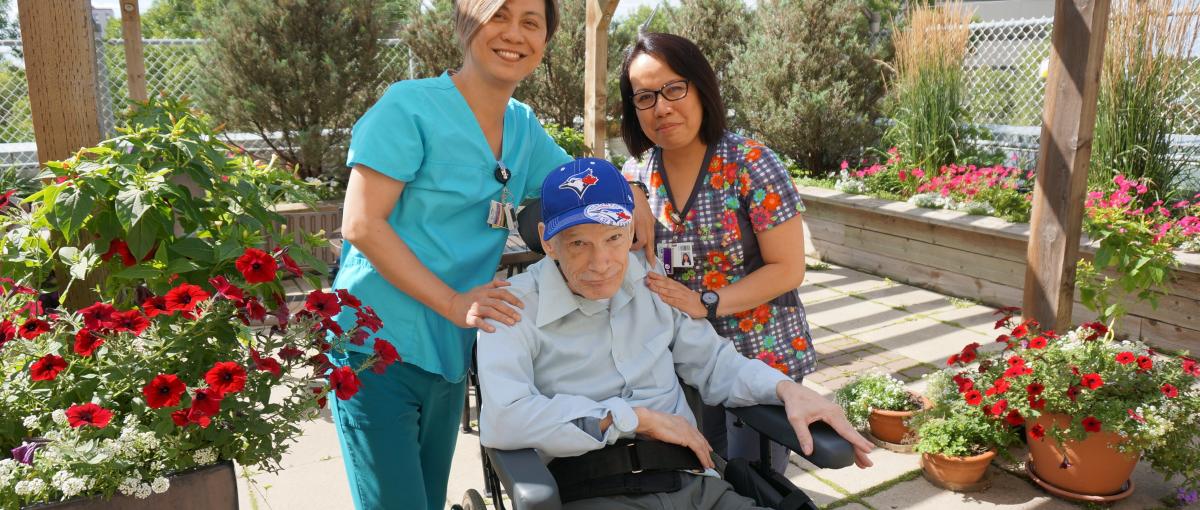Care team gets to the heart of Huntington disease

September 21, 2016
By Katrina Lingrell, Senior Advisor, Digital Communications, Covenant Health
“Our residents do not live in our workspace. We work in their home.” With these words written on the Edmonton General Continuing Care Centre (EGCCC) Unit 4Y whiteboard, it’s easy to understand why the staff sought more education on caring for residents with Huntington disease (HD).
What is Huntington disease?
HD is a degenerative disease that affects a person’s body and mind. It can cause depression and loss of impulse control. People with HD often have difficulty speaking and swallowing, and can experience involuntary movements that can be misinterpreted as violence. Symptoms manifest differently in everyone, so there is no simple care solution.
Proactively putting their hearts into it
“Our team got in touch with the Huntington Society of Canada to learn how to best care for our residents with HD,” says Val White, Resident Care Manager. “The society gave in-services to the staff and really helped them understand the residents’ needs.”
The training gave the staff more than just knowledge—it also brought them closer to the residents.
“The training gave us confidence to care for them and put our hearts into our work,” says Dominic Dayag, a healthcare aide on 4Y. “We know how important it is to get to know each resident.”
For Alvin Babcock, a resident living with HD since childhood, this dedicated care is everything.
“It’s not easy moving away from home, but they treat me well,” he says. “They respect us.”
Like Alvin, James Stubbs is flourishing thanks to his care team’s deepened understanding of HD.
“When I’m having problems I can overcome them,” he says. James is a dedicated sports fan and former oilpatch salesman who was heavily involved in his church, and still is today when he’s able.
Bernadette Modrovsky (Director, Northern Alberta) at the Huntington Society of Canada, graciously visits 4Y each month to facilitate a social group for residents with HD and their families. It’s also an opportunity for Bernadette to answer questions from the residents and their families—and, of course, for the group to interact.
“It’s a social opportunity to keep their minds active,” says Brenda Neuman, Recreational Therapist at the EGCCC. “Sometimes we can actually decrease residents’ medication by increasing their interaction with others.”
Continuous commitment to specialized care
Unit 4Y staff continue using their special knowledge to give residents with HD like Alvin and James the compassionate and individualized care they deserve, and they even participate in the annual Walk to Cure Huntington Disease.
“HD sometimes comes with a stigma, but that’s not here anymore,” says Brenda. “We don’t pigeonhole—we look at the whole person.”